Books Mark Zuckerberg thinks you should read this winter: Facebook CEO’s choices are far from light reads
- Zuckerberg launched a book club in January 2015, with a reading list focused on ‘different cultures, beliefs, histories, and technologies’
- Here are his top picks, from a 1377 text on humanity by an Islamic historian to a philosophy book written by a physicist
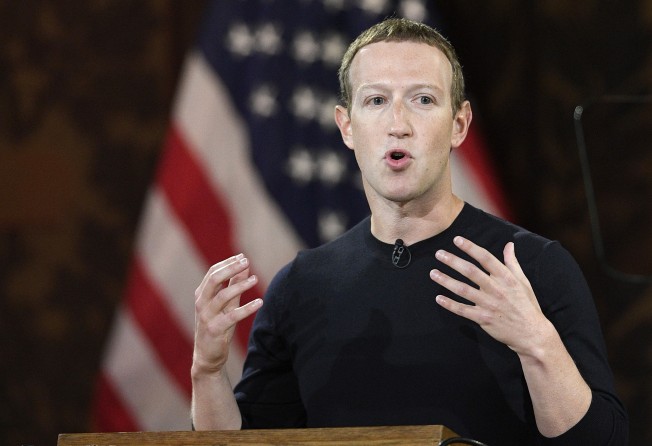
Facebook CEO Mark Zuckerberg has a single mission: to connect people around the world. It’s one reason why he decided to launch a book club in January 2015, with a reading list that focused on “different cultures, beliefs, histories, and technologies”.
Although the birth of his daughter, Max, kept him from hitting his goal of a book every two weeks, he ended 2018 with 23 selections in his A Year of Books reading group.
During the summer of 2019, he recommended another book.
Here are a list of his picks and why he thinks everyone should read them.
1. The Muqaddimah, by Ibn Khaldun
The Muqaddimah, which translates to “The Introduction,” was written in 1377 by the Islamic historian Khaldun. It’s an attempt to strip away biases of historical records and find universal elements in the progression of humanity.
“While much of what was believed then is now disproved after 700 more years of progress, it’s still very interesting to see what was understood at this time and the overall world view when it’s all considered together,” Zuckerberg writes.
2. The New Jim Crow by Michelle Alexander
Alexander is a law professor at Ohio State University and a civil-rights advocate who argues in her book that the “war on drugs” in the United States has fostered a culture in which non-violent black males are over-represented in prison, and then are treated as second-class citizens once they are freed.
“I’ve been interested in learning about criminal justice reform for a while, and this book was highly recommended by several people I trust,” Zuckerberg writes.
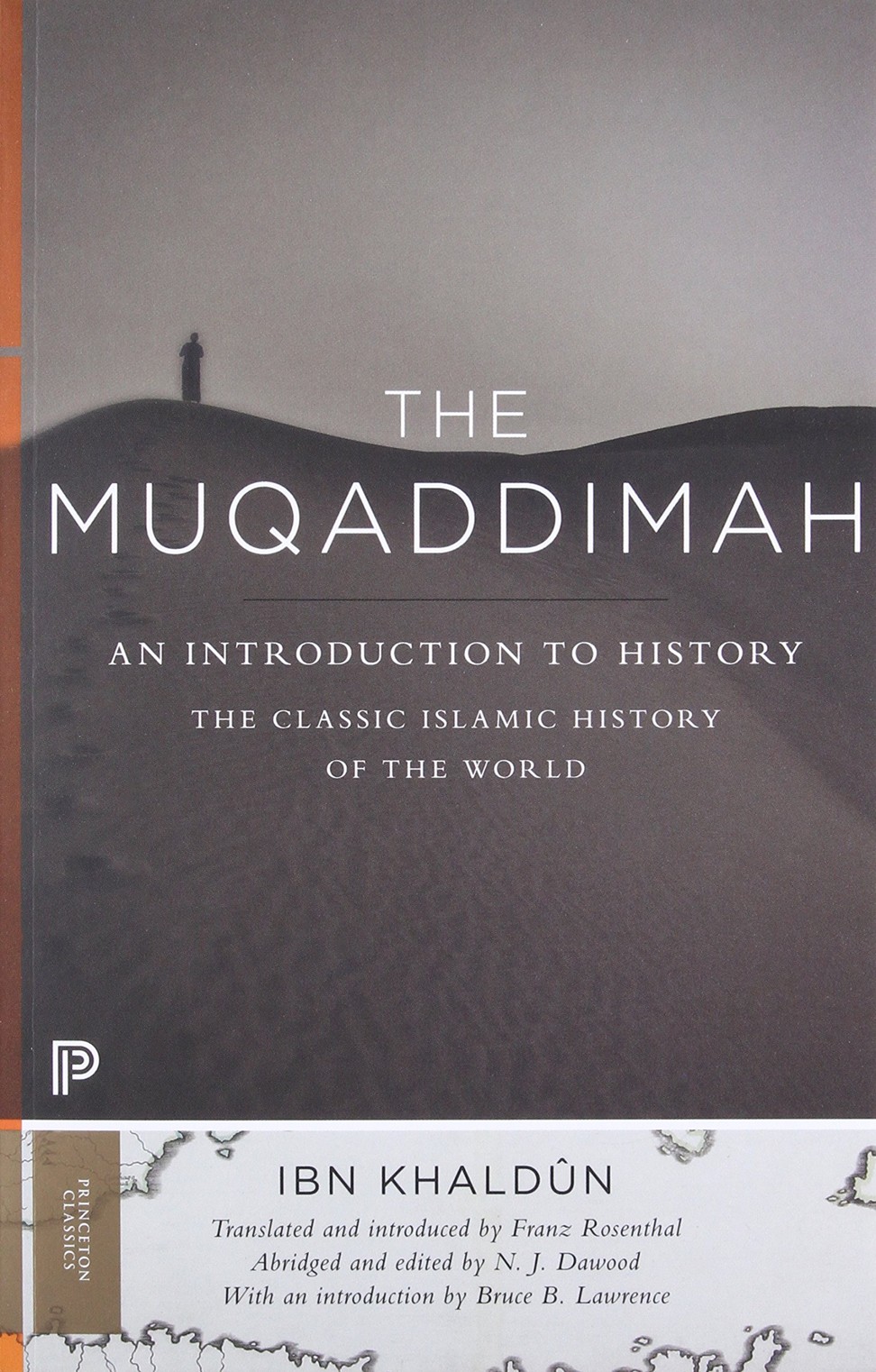
3. Why Nations Fail by Daron Acemoglu and James A. Robinson
Why Nations Fail is an overview of 15 years of research by MIT economist Daren Acemoglu and Harvard political scientist James Robinson, and was first published in 2012.
The authors argue that “extractive governments” use controls to enforce the power of a select few, while “inclusive governments” create open markets that allow citizens to spend and invest money freely, and that economic growth does not always indicate the long-term health of a country.
4. The Rational Optimist by Matt Ridley
First published in 2010, The Rational Optimist is the most popular and perhaps the most controversial of popular-science writer Matt Ridley’s books.
He argues that the concept of markets is the source of human progress, and that progress is accelerated when they are kept as free as possible. Zuckerberg says that he picked up this book because it posits the inverse theory of Why Nations Fail, which argues that social and political forces control economic ones.
5. Portfolios of the Poor, by Daryl Collins, Jonathan Morduch, Stuart Rutherford, and Orlanda Ruthven
Researchers Daryl Collins, Jonathan Morduch, Stuart Rutherford, and Orlanda Ruthven spent 10 years studying the financial lives of the lowest classes of Bangladesh, India, and South Africa.
A fundamental finding that they include in Portfolios of the Poor is that extreme poverty flourishes in areas not where people live dollar to dollar or where poor purchasing decisions are widespread, but instead arises where they lack access to financial institutions to store their money.
“It’s mind-blowing that almost half the world – almost three billion people – live on US$2.50 a day or less,” Zuckerberg writes. “I hope reading this provides some insight into ways we can all work to support them better as well.”
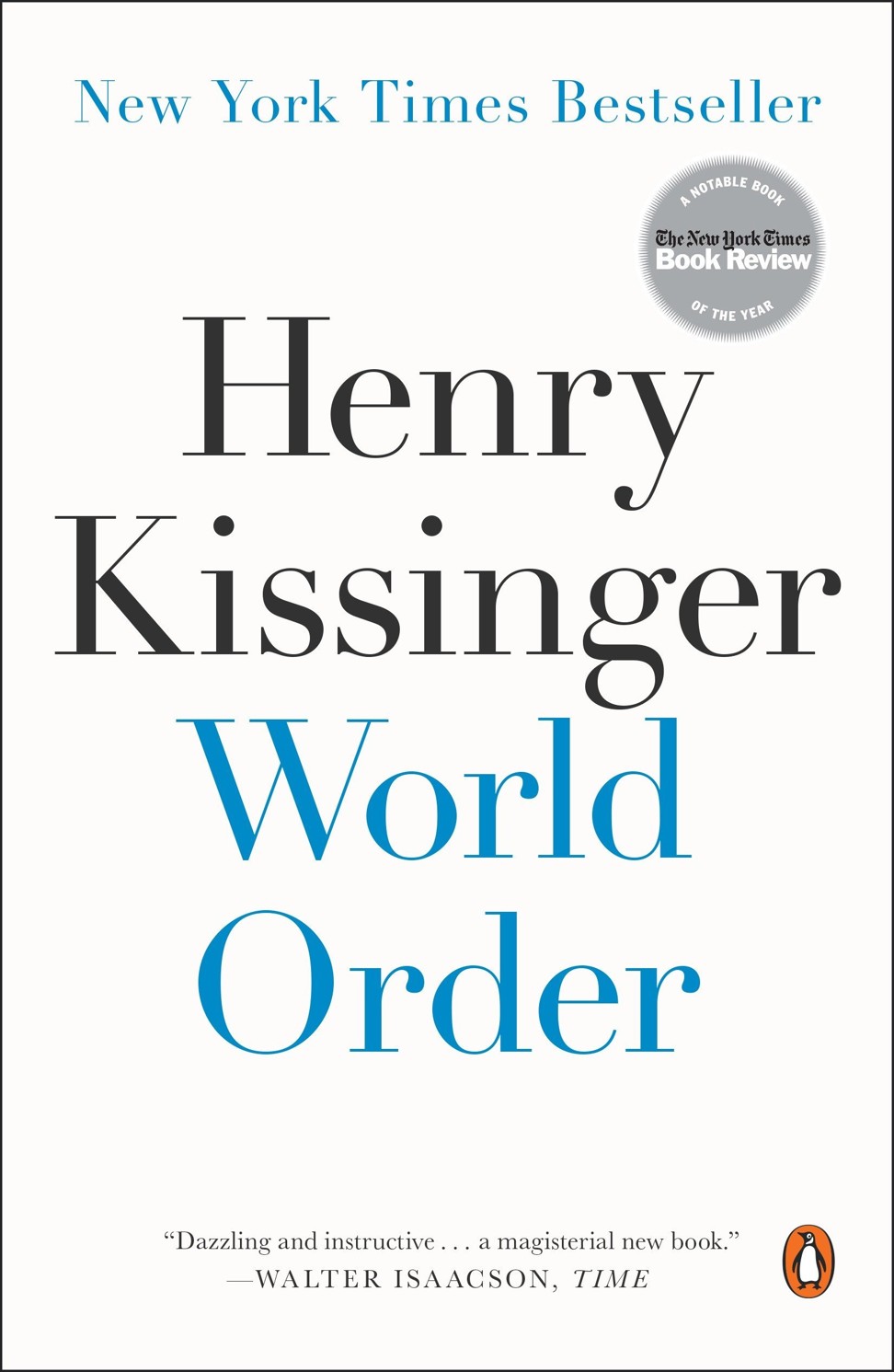
6. World Order, by Henry Kissinger
In 2014 book World Order, the 91-year-old former US secretary of state Henry Kissinger analyses the ways different parts of the world have understood the concept of empire and political power for centuries, and how the modern global economy has brought them together in often tense or violent ways.
“It’s about foreign relations and how we can build peaceful relationships throughout the world,” Zuckerberg writes. “This is important for creating the world we all want for our children, and that’s what I’m thinking about these days.”
7. Creativity, Inc., by Ed Catmull
Creativity, Inc. is the story of Pixar, written by one of the computer-animation giant’s founders.
Catmull intersperses his narrative with valuable wisdom on management and entrepreneurialism, and argues that any company should consciously avoid hampering their employees’ natural creativity.
“I love reading first-hand accounts about how people build great companies like Pixar and nurture innovation and creativity,” Zuckerberg writes.
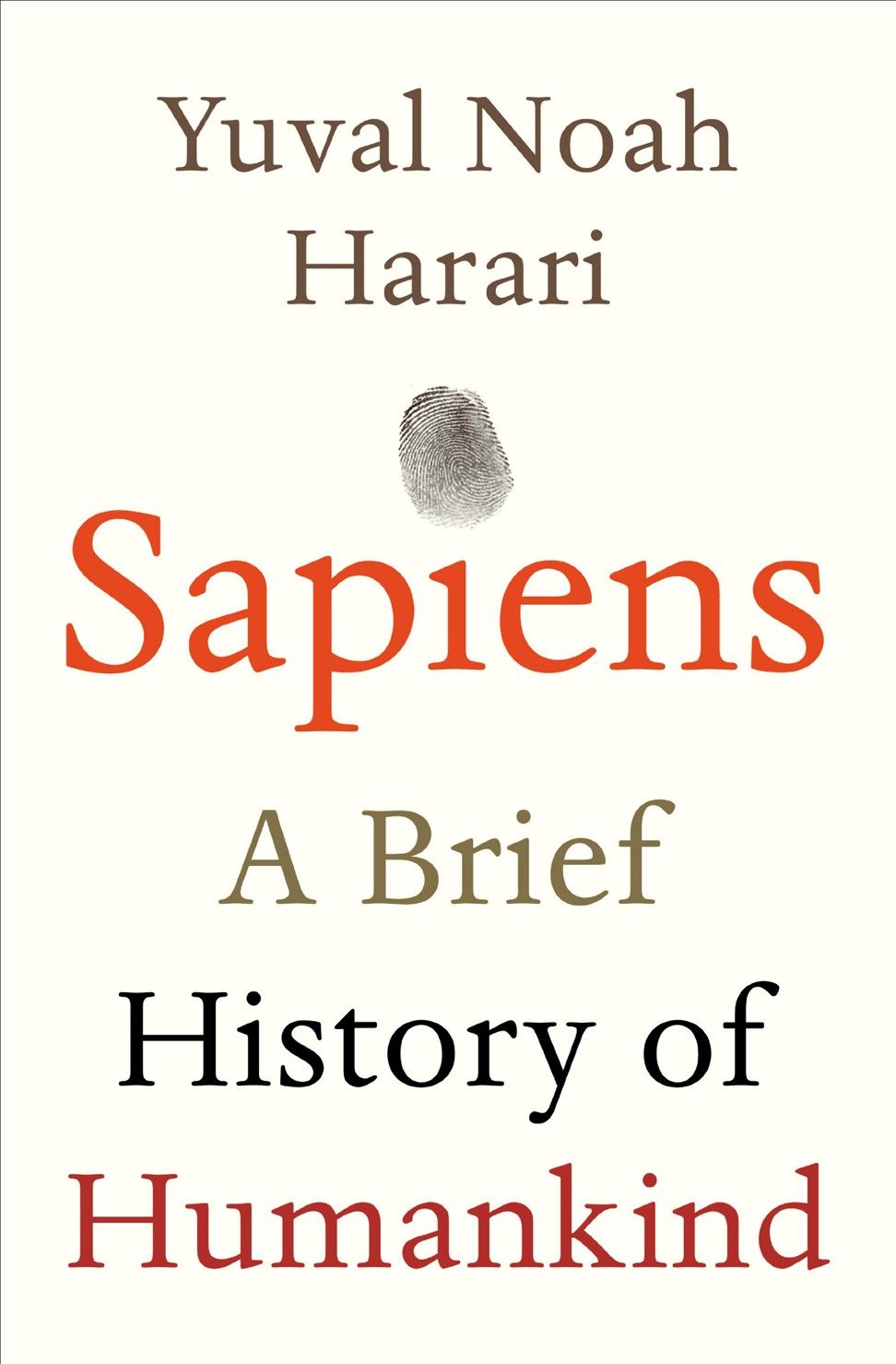
8. Sapiens, by Yuval Noah Harari
First published in 2014, Sapiens is a critically acclaimed international bestseller by Hebrew University of Jerusalem historian Harari. He uses his book to track the evolution of Homo sapiens from hunter-gatherers into self-empowered “gods” of the future.
“Following The Muqaddimah, which was a history from the perspective of an intellectual in the 1300s, Sapiens is a contemporary exploration of many similar questions”, Zuckerberg writes.
9. The Varieties of Religious Experience, by William James
William James (1849-1919) is “considered by many to be the most insightful and stimulating of American philosophers”, according to the internet Encyclopedia of Philosophy from the University of Tennessee.
The Varieties of Religious Experience is a collection of written lectures that explore the religious consciousness and the mechanics of how people use religion as a source of meaning, forcing them to move onwards through life with energy and purpose.
“When I read Sapiens, I found the chapter on the evolution of the role of religion in human life most interesting and something I wanted to go deeper on,” Zuckerberg writes.
10. The Structure of Scientific Revolutions, by Thomas S. Kuhn
If there was ever a philosophy book to read by a physicist, it’s probably The Structure of Scientific Revolutions. Since its initial publication in 1962, this look at the evolution of science and the effect it has on the modern world has become one of the most cited academic books of all time.
Zuckerberg thinks that being aware of how scientific breakthroughs are the catalysts for social progression can be a “force for social good”.
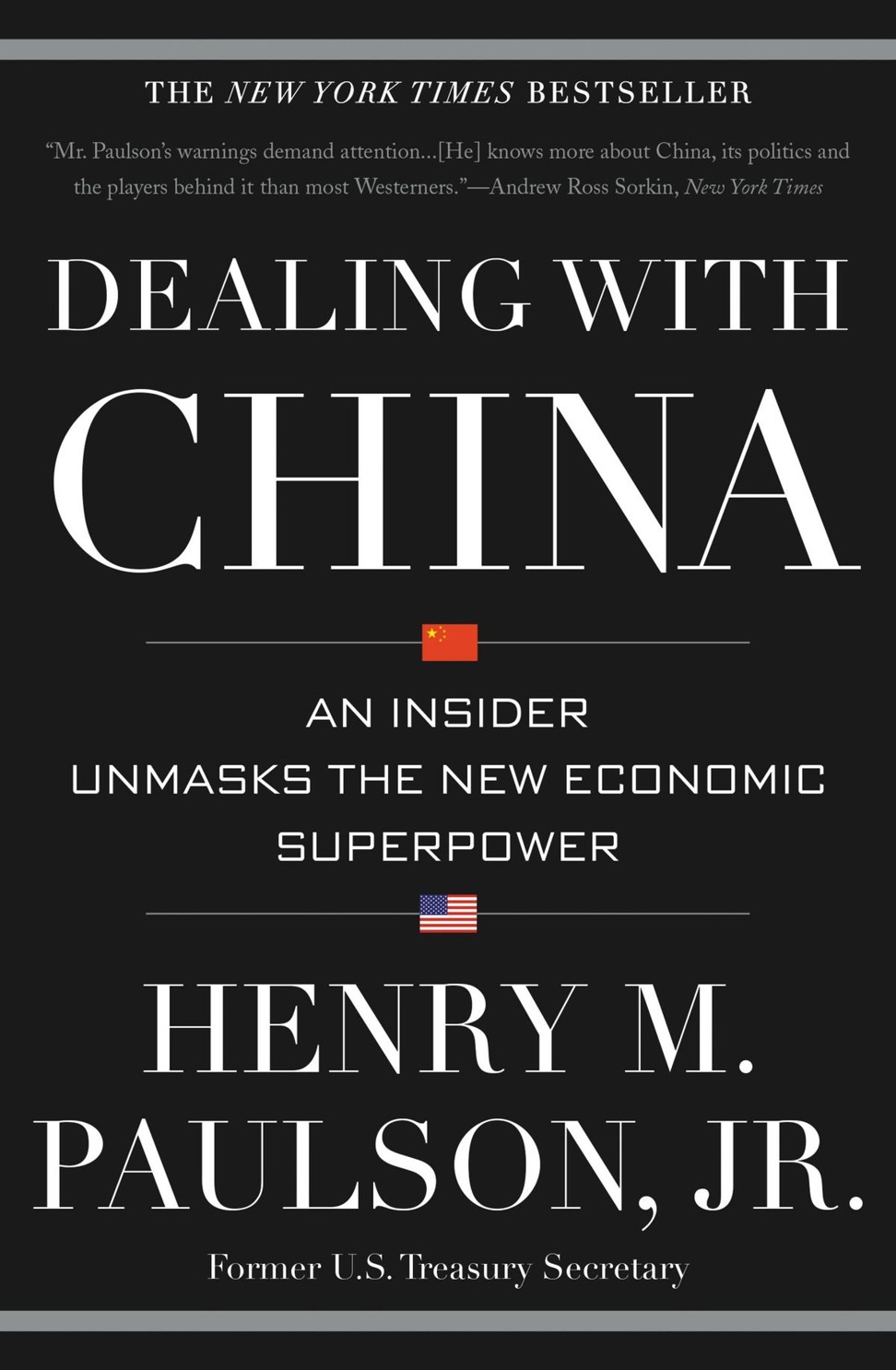
11. Dealing with China, by Henry M. Paulson Jnr
Zuckerberg has been fascinated with Chinese culture over the past several years. He’s been learning to speak Chinese and has said that one of his long-term goals is convincing the Chinese government to let its people use Facebook.
Dealing with China, by the former US Treasury secretary, explores China’s recent rise in global influence and how it affects the world.
“Over the last 35 years, China has experienced one of the greatest economic and social transformations in human history,” Zuckerberg writes. “China has done more to lift people out of poverty than the whole rest of the world combined.”
12. The Beginning of Infinity, by David Deutsch
Oxford physicist David Deutsch’s The Beginning of Infinity is a sprawling look at the progress of humanity following the Scientific Revolution. It touches on everything from art and science to politics and philosophy.
Deutsch concludes that human potential is infinite, perhaps the purest expression of the optimism regarding the fate of humanity that many of Zuckerberg’s selections.
13. The Better Angels of Our Nature, by Steven Pinker
Zuckerberg admits that this 800-page, data-rich book from a Harvard psychologist can seem intimidating. But the writing is actually easy to get through, and he thinks that Pinker’s study of how violence has decreased over time despite being magnified by a 24-hour news cycle and social media is something that can offer a life-changing perspective.
14. The End of Power, by Moisés Naím
Moisés Naím is a former executive director of the World Bank and senior fellow at the Carnegie Endowment for International Peace. His book is a historical investigation of the shift of power from authoritative governments, militaries, and major corporations to individuals.
This is clearly seen in what’s now become a Silicon Valley cliché: the disruptive start-up.
“The trend towards giving people more power is one I believe in deeply,” Zuckerberg writes.
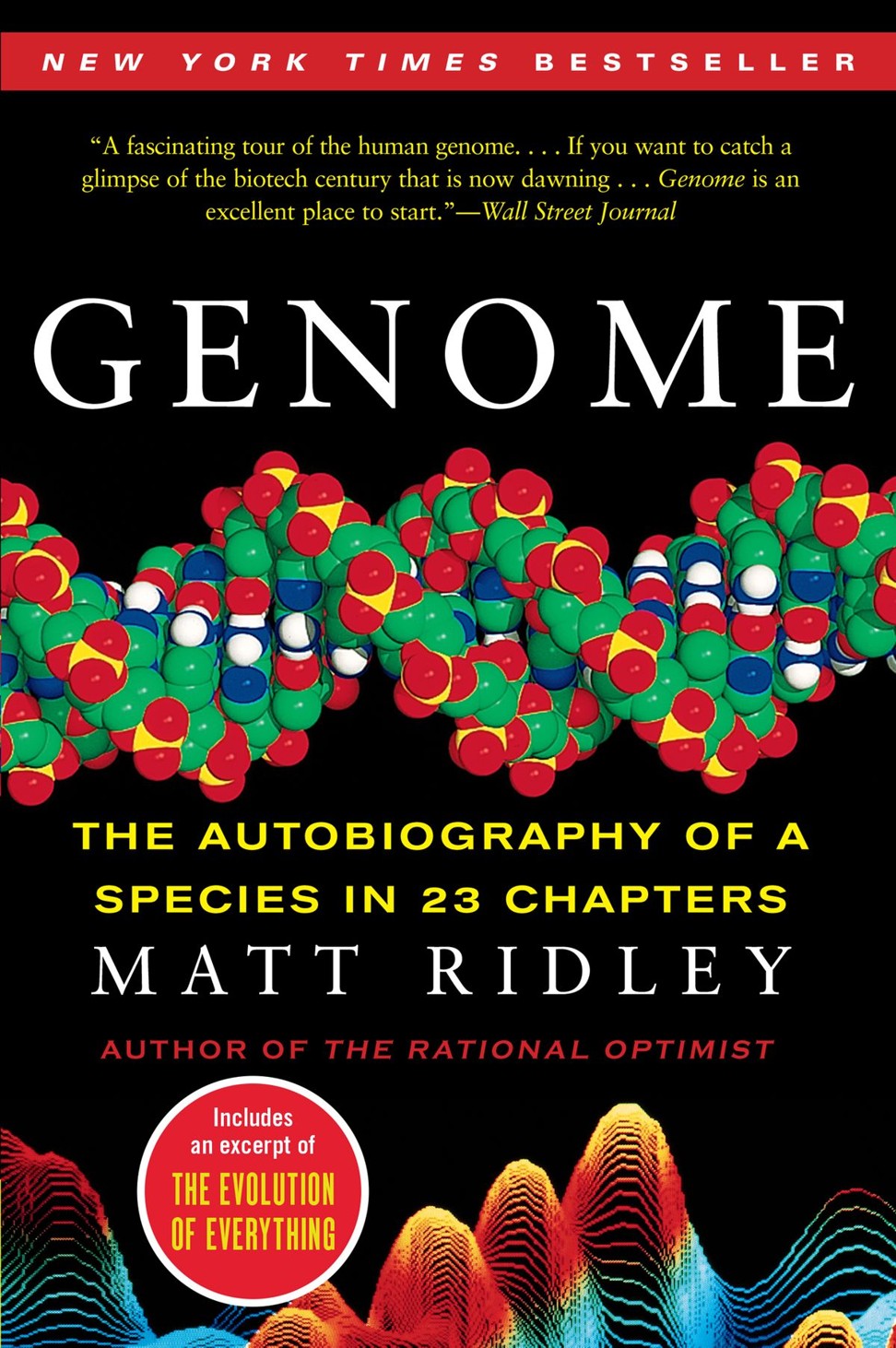
15. Genome, by Matt Ridley
Ridley is the only author to appear on Zuckerberg’s list twice. His 1990 book Genome is an exploration of the evolution of genes and the growing field of genetics.
“This book aims to tell a history of humanity from the perspective of genetics rather than sociology,” Zuckerberg writes. “This should complement the other broad histories I’ve read this year.”
16. On Immunity, by Eula Biss
Zuckerberg says that Biss’ investigation into the benefits of vaccination is necessary to read, considering the anti-vaccination movement in the US and parts of Europe.
“The science is completely clear: vaccinations work and are important for the health of everyone in our community,” Zuckerberg writes, adding that this book was highly recommended to him by scientists and public-health workers.
17. The Idea Factory, by Jon Gertner
Fast Company editor Jon Gertner’s 2012 book The Idea Factory tells the history of Bell Labs from the 1920s until the 1980s, a period in which the invention of the transistor revolutionised the world of technology and the innovation-fostering management style that rules Silicon Valley was first developed.
Zuckerberg writes that he chose the book because he is “very interested in what causes innovation – what kinds of people, questions, and environments”.
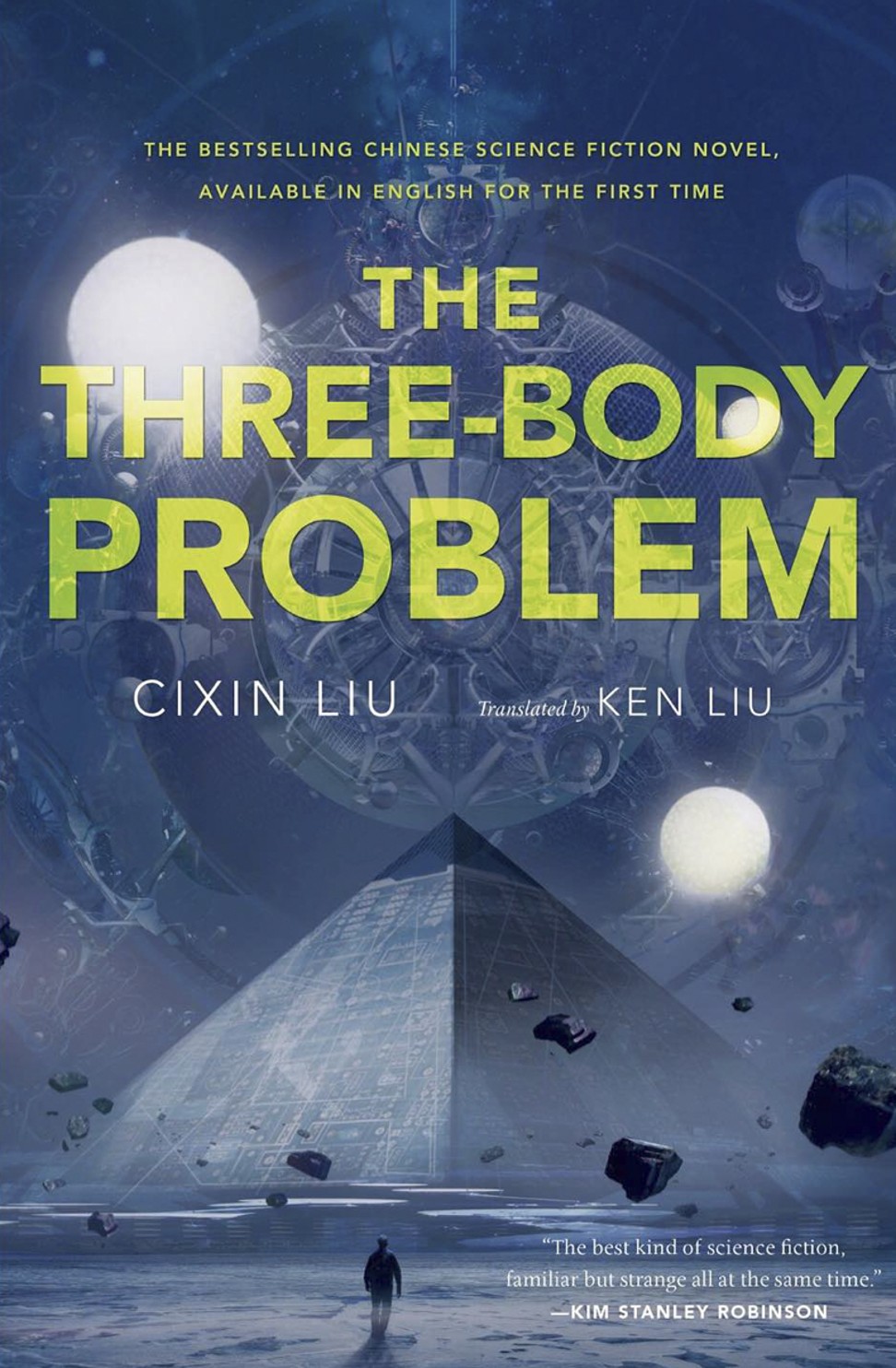
18. The Three-Body Problem, by Liu Cixin
The Three-Body Problem was first published in China in 2008, and the English translation that came out last year won the 2015 Hugo Award for Best Novel, an award for sci-fi book of the year.
It’s set during Mao Zedong’s Cultural Revolution and kicks off when an alien race decides to invade Earth after the Chinese government covertly sends a signal into space. Zuckerberg writes that it’s a fun break from some of the heavier material he’s been reading in his book club.
19. Gang Leader for a Day, by Sudhir Venkatesh
Venkatesh is a Columbia University sociology professor who, in a radical sociological experiment, embedded himself into a Chicago gang in the 1990s.
Zuckerberg says that Venkatesh’s story is an inspiring one of communication and understanding across economic and cultural barriers. “The more we all have a voice to share our perspectives, the more empathy we have for each other and the more we respect each other’s rights,” Zuckerberg writes.
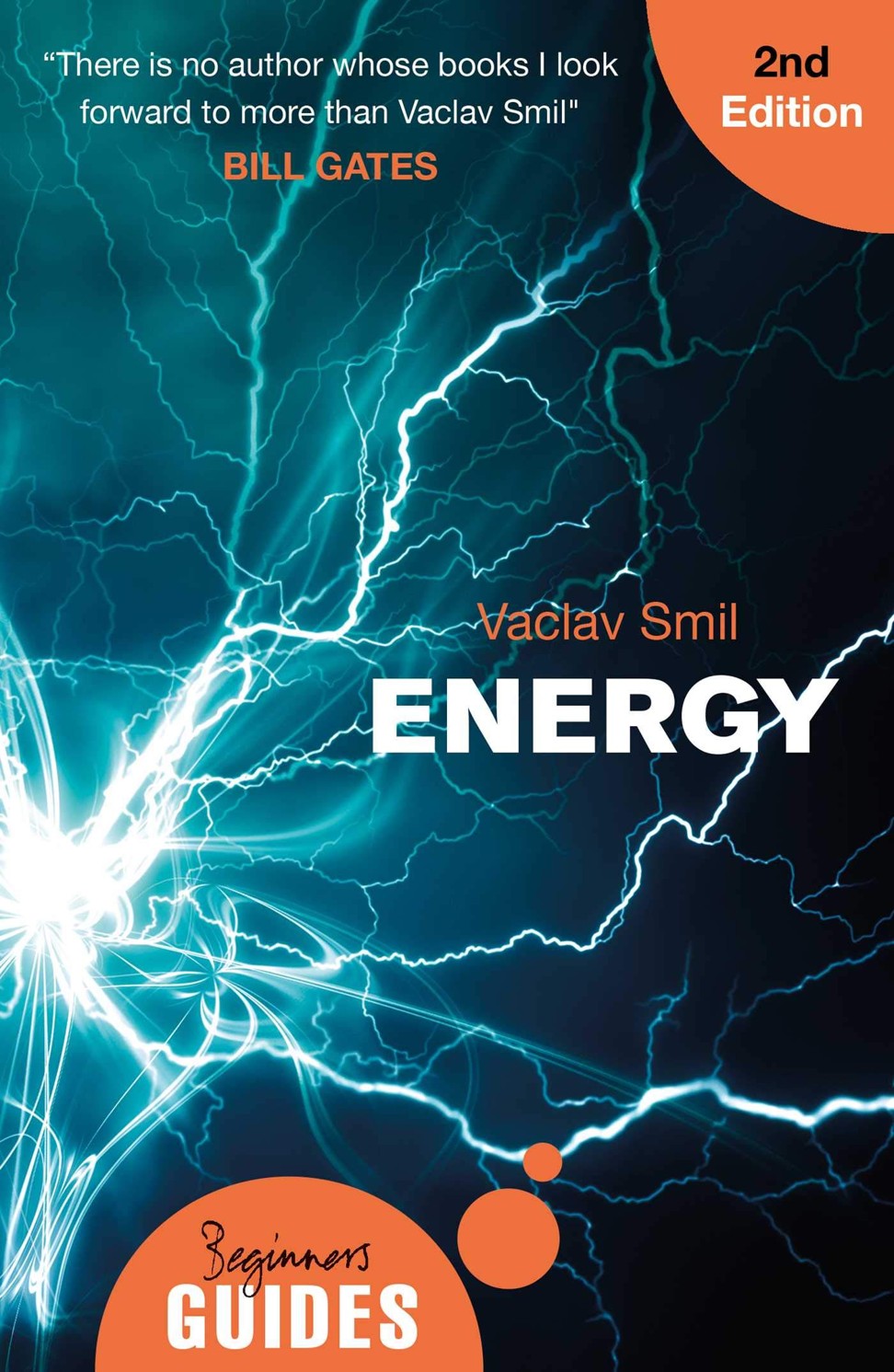
20. Energy: A Beginner’s Guide, by Vaclav Smil
Originally published in 2006, Energy starts with a basic explanation of what energy is and then moves on to more complex subjects, including the quest to create more efficient and environmentally friendly fuels. It’s by University of Manitoba professor Vaclav Smil, one of Microsoft founder Bill Gates’ favourite authors.
“It explores important topics around how energy works, how our production and use might evolve, and how this affects climate change,” Zuckerberg writes.
21. The Player of Games, by Iain M. Banks
The Player of Games was first published in 1988 and is the second in Banks’ “Culture” series. It explores what a civilisation would look like if hyper-advanced technology was created to serve human needs and surpassed human capabilities.
Zuckerberg writes that he went with a sci-fi pick as a “change of pace”. The novel is also one of Tesla and SpaceX CEO Elon Musk’s favourite books because of its entertaining way of exploring plausible advances in technology.
22. Orwell’s Revenge, by Peter Huber
Huber, a fellow at the Manhattan Institute for Policy Research, published this unofficial sequel to George Orwell’s 1984 in 1994, a time when internet and telecommunications technology were opening up new methods of communication. The novel imagines a world in which citizens use the technology that once enslaved them to liberate themselves.
“After seeing how history has actually played out, Huber’s fiction describes how tools like the internet benefit people and change society for the better,” Zuckerberg writes.
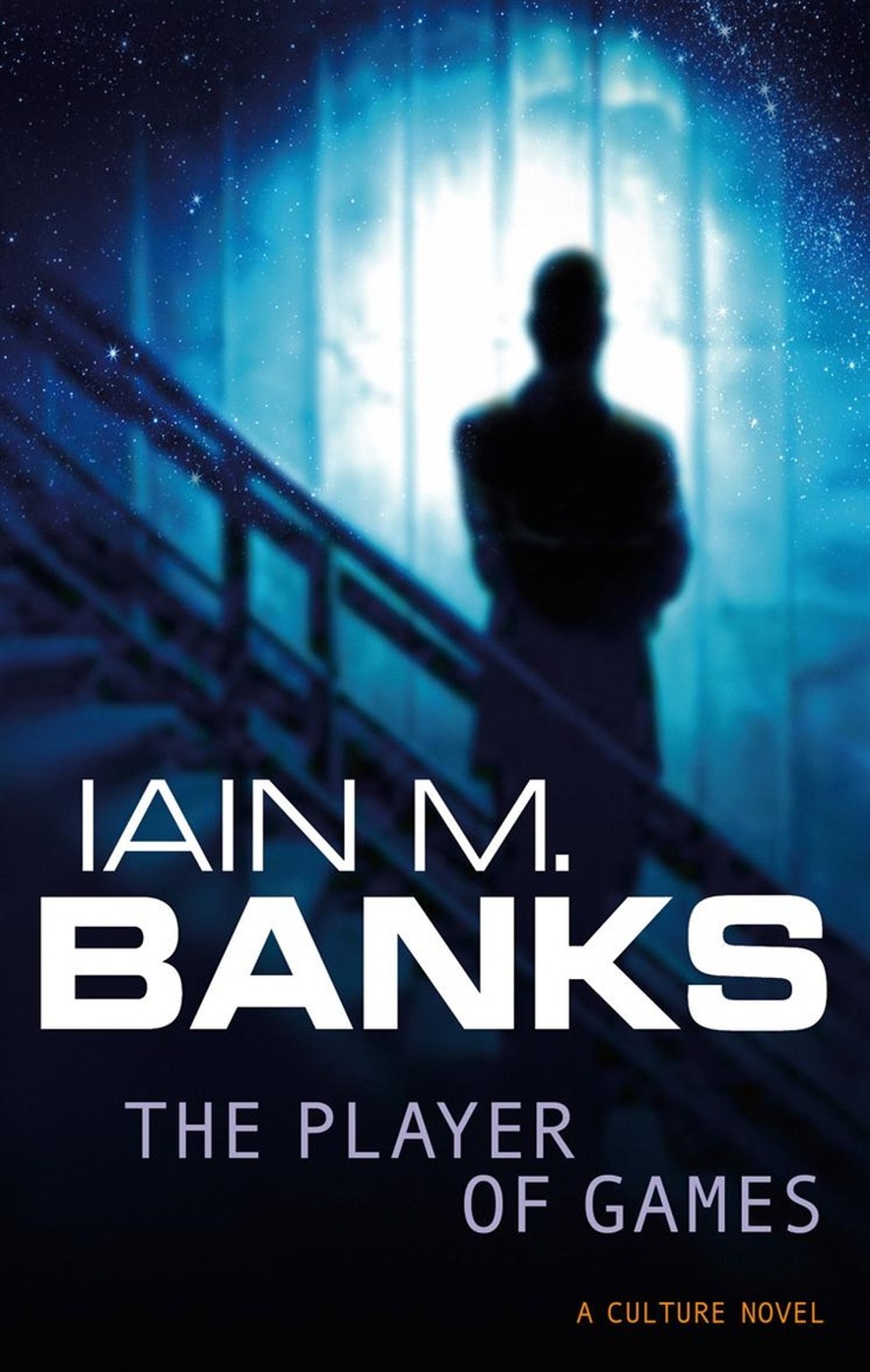
23. Rational Ritual, by Michael Suk-Young Chwe
Zuckerberg thinks that this book by UCLA economist Michael Suk-Young Chwe can help its readers learn how to best use social media.
“The book is about the concept of ‘common knowledge’ and how people process the world not only based on what we personally know, but what we know other people know and our shared knowledge as well,” Zuckerberg writes.
24. The Last Days of Night, by Graham Moore
Zuckerberg recommended this book as part of a summer 2019 reading list compiled by NBC’s Dylan Byers.
“It’s about the competition to electrify the nation between Edison, Westinghouse and Tesla,” Zuckerberg says. “Graham is a great storyteller.”
His recommendation drew ridicule, as the book celebrates Edison trying to preserve his electricity monopoly. Critics drew parallels with Zuckerberg’s control over Facebook.